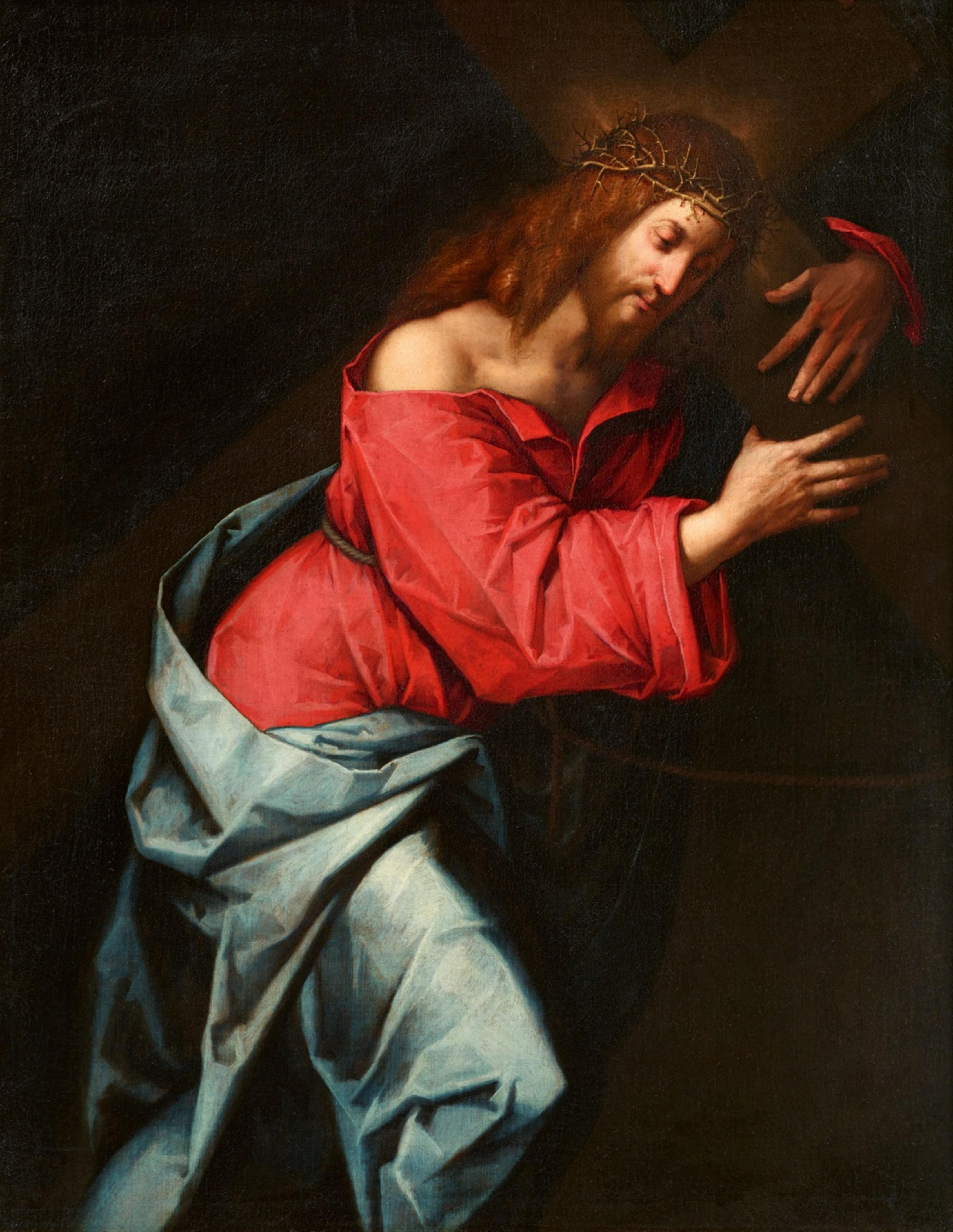Jacopo Ligozzi
Christ Carrying the Cross
Oil on canvas. 104.5 x 81 cm.
This painting shows Christ crowned with thorns, carrying the cross over one shoulder with both hands. The radiant reds and blues of Christ's robes, rendered with angular folds, shine out against the dark background. Both the theme of Christ carrying the cross and the close-up rendering in a narrow image were particularly popular during the time of the Counter-Reformation, as they enabled the devout observer to better empathise with Christ's suffering. A prominent follower of the artistic objectives of the Counter-Reformation was the painter Jacopo Ligozzi, who was born in Verona but worked mainly in Tuscany. Sandro Bellesi attributes the present work, which he has examined in the original, to Ligozzi, describing it as one of the artist's most expressive religious works ("L'opera, catalogabile tra le espressioni più intense della poetica sacra di Ligozzi").
Ligozzi, the "pittore universalissimo" as he was referred to in the title of a Florentine exhibition dedicated to him in 2014, was initially active as a court artist for the Medici after moving to Florence and first achieved fame with his meticulously executed scientific images, carried out in a luminous mix of watercolours and opaque colours, as well as his ephemeral painted architectural settings for the festivities and funerals of the Tuscan grand dukes. Towards the end of the 16th century, Ligozzi increasingly turned to religious painting and created numerous altarpieces for important churches and monasteries in Tuscany. Sandro Bellesi sees him as one of the most original and interesting artistic personalities active in Tuscany between the 16th and 17th centuries ("personalità artistica tra le più originali e interessanti attive in Toscana tra Cinquecento e Seicento").
Certificate
Sandro Bellesi, Sesto Fiorentino, undated.

